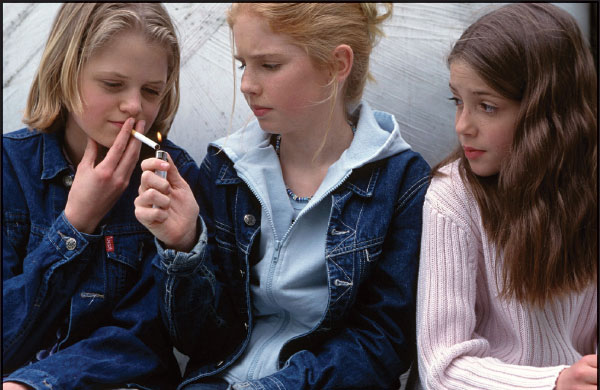 Steven has been banging on tables with forks and spoons ever since anyone can remember. But it took his astute parents to realize that, despite this annoying habit, he seemed to have pretty good rhythm. So they bought him a bongo which he practiced on regularly and eventually a set of drums and regular lessons. Now Steven is a teen with a talent that he is proud of. He has a sense of self-esteem because of the passion that he has developed.
Steven has been banging on tables with forks and spoons ever since anyone can remember. But it took his astute parents to realize that, despite this annoying habit, he seemed to have pretty good rhythm. So they bought him a bongo which he practiced on regularly and eventually a set of drums and regular lessons. Now Steven is a teen with a talent that he is proud of. He has a sense of self-esteem because of the passion that he has developed.
Sarah loved puttering around in the kitchen while her mother was baking. She enjoyed carefully measuring the ingredients and waiting for the finished cakes to emerge from the oven. As she got older, Sarah’s mother let her experiment with recipes and create her own cookies and frostings. Today she is an accomplished baker who makes beautiful pastries which she shares with family and friends.
Jack loved to color. Everyday, while his friends were out playing, Jack would sit at the table and create beautiful designs. His mother realized he had true talent and bought him expensive paints. Now Jack is studying art in college.
These kids, all with varying academic skills and backgrounds, have one thing in common. They all have passion—a special interest or a commitment to a specific subject or activity. One can have a passion for just about anything—a sport, a musical instrument, a special collection (remember stamp collecting?), an activity, or a talent. Passion means that a child cares enough about this interest to invest time and energy into learning more about it or excelling at it. The result is a child who is well-rounded, interesting, self-confident, and has a firm sense of who he or she is. Passion makes a child feel special.
I like to encourage the children I work with to develop a passion of their own. I’ve observed many children with special interests and I’ve seen what a difference it makes in their lives. Many important life skills are developed when a child has a special interest, and not all of them are directly related to the interest itself. Children with a ‘passion’ or a hobby develop patience and persistence. They acquire a refreshing love of learning. They learn how to get along well with other people, especially those who share the same interests as they do. They develop better relationships with their parents, especially when the parents take an active role in helping them pursue their interest. And they learn how to relate to other supportive adults outside the family, like the piano teacher, the soccer coach, the art instructor, the librarian, etc.
Now let’s compare this to children who have no particular passion. These children often complain of boredom. They come home from school, do some homework, and wander aimlessly about the house. They may have friends over, they may go out to play, they may even become involved in a sport for a while. Or they may sit in front of the computer or visit the mall once again.
All children benefit greatly by developing a special interest, but none more so than the child who is struggling in class, either socially or academically. These children desperately need to develop a positive sense of self-esteem as well as a feeling of personal value. Nothing makes a child feel good about themselves as much as excelling in a specific hobby, talent, or activity. It gives the child a terrific feeling of being special.
Parents who recognize the importance of this should take a proactive approach in helping their children identify and develop a special interest. A clever parent will watch a child carefully, waiting for the interests and the passions to emerge. The child needn’t be particularly adept at this interest, in fact he or she might not be good at it at all. But the parent should have enough evidence to suggest that this is an interest that captures their child’s fancy and makes him or her excited, interested and involved.
A note of caution: make sure it’s the child’s interest you are pursuing and not your own. If you always wanted to be a ballerina but never had the chance, don’t expect your reluctant daughter to live your dream for you. If you decide that it’s about time someone makes good use of the baby grand in the living room, don’t drag your son to music lessons if he hates playing the piano. Key in on the interest that gives your child a special thrill, and work to build it into a hobby or a skill.
This may mean a certain amount of investment on your part, whether you’re buying a state-of-the-art digital camera for a budding photographer, or a semester of art lessons for an aspiring Picasso. It may also mean an investment of your time, as in chauffeuring your soccer champion to team practice once a week or attending endless dance recitals. But the end result is well worth it. Ultimately, your child will be happier and more self-fulfilled.
What if you’d like your child to develop a passion but are clueless as to where his special interests lie? In that case, it might be a good idea to consult with his teacher. Children spend a considerable amount of time in school and their teachers relate to them on a regular basis. They may be aware of a special interest which you have overlooked or which your child never actually reveals at home. Ask your child’s teachers to keep their eyes open. Does your child give an unusual amount of attention to a certain object, skill, hobby or talent?
In his masterful volume, Nurturing Good Children Now, Dr. Ron Taffel encourages parents to allow their children to pursue a passion. “Having passion is vital to a child’s core,” he writes. “It teaches her the rules of life and leads to the development of persistence and enthusiasm. In order to sustain an interest or activity, children need to be able to understand and express their feelings, to face new situations and challenges and to trust adults. Once a child possesses passion, it becomes a form of fitness training and muscle conditioning all in one.”
So the next time Michael starts making annoying noises with his silverware or Rebecca bangs on the piano, think twice before you start complaining. Instead, try to channel their interests in a positive way. Help them to develop these ‘skills’ in a productive manner. The result will be children who are proud, happy, well disciplined and self-confident.
___________________
Mrs. Rifka Schonfeld founded and directs the widely acclaimed educational program SOS, servicing all grade levels in secular as well as Hebrew studies. She offers teacher training, consulting services and evaluations. She has extensive expertise in the field of social skills training and focuses on working with the whole child.



